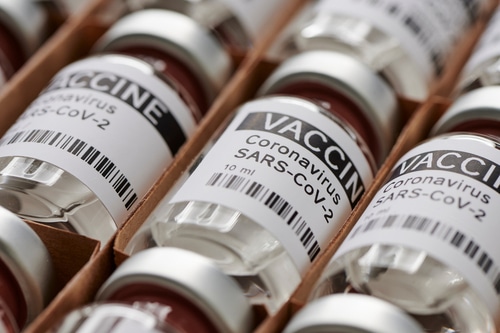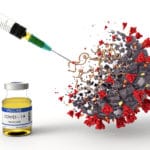COVID-19 booster: Main points you should know

With a Centers for Disease Control and Prevention panel signing off late Thursday on updated COVID-19 boosters, the city of Chicago is in line to receive about 150,000 initial doses of the new shots, which target omicron subvariants. That means health care workers could begin to administer the vaccine boosters as soon as next week. Chicago Public Health Commissioner Dr. Allison Arwady briefed reporters on why Chicagoans should get their shot and who is likely eligible.
Who can get this booster?
While it’s possible this guidance could change, Arwady said Thursday that anyone who has completed their primary vaccine series (the initial two-dose regimen of Pfizer or Moderna or the single Johnson & Johnson shot) is eligible for this booster.
If you also received previous COVID-19 boosters, you are eligible for the new booster as long as your last shot was at least two months ago. “So if it’s been two months since you either finished your primary series or got any of that older booster, you are good to go. If you just got a booster two weeks ago you should wait two months,” Arwady said. The Pfizer booster is available for anyone who is at least 12, and Moderna is available for anyone 18 and older.
About 1.8 million Chicagoans should be eligible, since about 77% of Chicagoans over 12 have received their primary series, Arwady said.
Are there priority groups this time?
In previous vaccination rounds, officials sometimes mandated only certain groups — such as front-line health care workers and those with critical illnesses — be first in line. Arwady said the city is not expecting the federal government to mandate priority groups. “Obviously the groups of highest concern are older Chicagoans, so we are prioritizing making sure people in long-term care, people in hospitals, people are getting cancer care, senior centers, etc.” are getting vaccinated first. “This is partly because the federal government nationwide has told us they anticipate being able to ship about 20 times more vaccine per week than they could in the initial vaccine rollout.”
Where are the doses going?
About half of the doses in the first week will go to 90 retail pharmacies such as CVS and Walgreens across Chicago. The other half will go to health care facilities such as hospitals. The city is also working with the Chicago Housing Authority, Department of Family and Support Services Senior Centers and Chicago Public Schools to get doses out. The city will also hold some clinics at City Colleges locations and expand vaccine clinics as they receive more doses.
Why get a booster now?
This booster shot is “the best possible match” to fight the most dominant strains of the virus present in the Midwest right now: BA.4 and BA. 5, Arwady said. Those two make up roughly 97% of current infections. If the virus mutates further, this booster could be less effective to fight it. “We very much are going to want people to get this updated vaccine now, not to wait three and four months.”
Afternoon Briefing
Can I still get the original booster?
For most people, no. “With this new authorization, the monovalent — meaning the old version — (is) not authorized anymore as booster doses,” Arwady said. “So anybody over the age of 12 who’s looking for a booster, this is the one that they’re going to get. Individuals 5 to 11 can still get the original booster.”
Will it still be free?
Yes, though Arwady presumes this will be the last vaccine available regardless of insurance status, because there hasn’t been additional funding approved for vaccine distribution.
Source: chicagotribune.com










